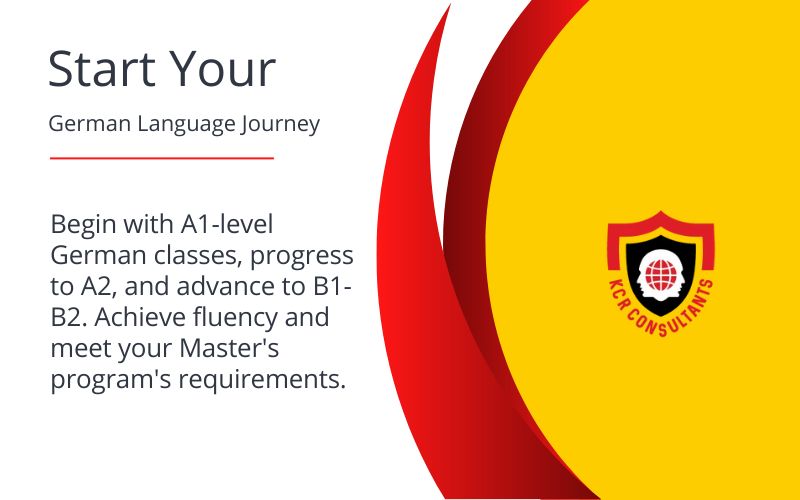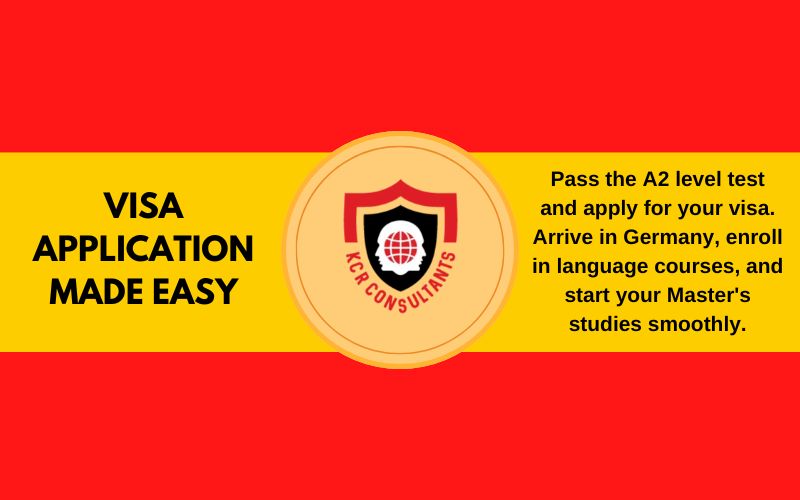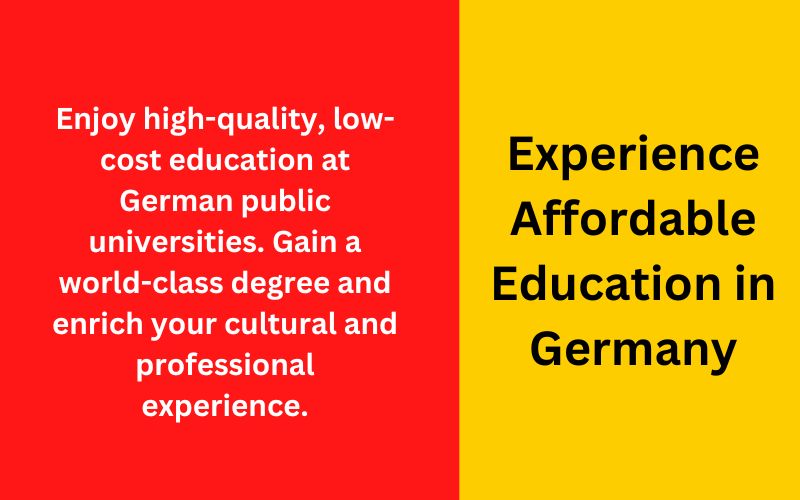Applying for a Master’s Degree in Germany Without IELTS and German Language
Are you interested in applying for a Master’s degree course in Germany without needing IELTS or prior German language skills? This is possible, and KCR can assist you throughout the process, ensuring you secure conditional admission to a public university for your desired Master’s program. Let’s explore how this can be achieved and what steps are involved.
Understanding Conditional Admission Offers
Many public universities in Germany offer conditional admission for various Master’s programs, a relief for many international students who may not need to take the IELTS. However, learning the language would be beneficial since these programs are taught in German. The journey begins with German language courses that prepare you for your degree studies.
Starting Your German Language Courses
If you still need to gain German language skills, your first step is to start with A1-level classes. It is advisable to reach the A2 level as German language classes in Germany typically begin at the B1 level. This foundational knowledge will make your transition to B1 smoother and more effective, giving you the confidence to progress.
Progressing Through Language Levels
Once you have completed your A2-level German language classes, you can apply for your student visa. Upon arriving in Germany, there are several essential steps to follow:
Report to the University’s Language Center : The first thing you need to do is report to the language center at your university. They will guide you in enrolling in the appropriate language classes.
Enroll in B1 Classes : You will start your language studies at the B1 level, building on the foundational knowledge you gained from the A1 and A2 courses.
Continue to B2 and C1 Levels : Progressing to B2 and C1 levels is crucial as these are typically the language proficiency levels required for admission into Master’s programs. These levels ensure you have a strong command of German, which will be necessary for your academic success.
Application Process for a Visa
Applying for your visa is critical once you have passed the A2 level test. The visa process involves several steps:
Collect Necessary Documents : Ensure you have all required documents, including your conditional admission letter, proof of language course enrollment, financial proof, and health insurance.
Submit Your Visa Application : Apply for your student visa at the nearest German consulate or embassy. The processing time can vary, so it is important to apply well in advance.
Prepare for Your Arrival : Once your visa is approved, prepare for your move to Germany. This includes arranging accommodation and familiarizing yourself with the local culture and customs.
Settling in Germany
After arriving in Germany, you need to follow several steps to ensure a smooth transition:
Register Your Accommodation : Register your address with the local registration office (Bürgeramt). This is a legal requirement and crucial for obtaining your residence permit.
Health Insurance : Ensure you have insurance valid in Germany. You can either activate a local health insurance policy or continue with an international one that meets German standards.
Activate Your Blocked Account : If you have a blocked account (Sperrkonto) for financial proof, ensure it is activated to access your funds.
Apply for a Resident Permit : Visit the nearest immigration office (Ausländerbehörde) to apply for your resident permit, which allows you to stay in Germany.
Continuing to Your Master’s Program
As you progress through your language courses, you will eventually meet the admission conditions for your Master’s degree program. Completing the required language levels (B2 or C1) is crucial. Once you achieve this, you can seamlessly transition into your Master’s studies. This progression ensures you are linguistically and academically well-prepared for your Master’s program.
Post-Study Opportunities
Germany’s current immigration laws offer excellent opportunities for international students after their studies. You can explore several options:
Look for a Job : After completing your Master’s degree, you can search for a job related to your field of study. You can switch to a work permit once you receive a job offer and contract.
18-Month Job Seeker’s Visa : If you need more time to find a job, you can apply for an 18-month job seeker’s visa. This visa allows you to reside in Germany and look for employment. During this period, you can take up odd jobs to support yourself.
Switch to a Work Permit : Upon securing a job, you can apply to switch from a job seeker’s visa to a work permit, allowing you to work and reside in Germany long-term.
Benefits of Studying in Germany
Studying in Germany offers numerous benefits, especially for those who wish to apply for a Master’s degree course without needing IELTS. Key advantages include a high-quality education, affordable tuition fees, a rich cultural experience, and excellent career opportunities. These benefits can make your academic journey in Germany exciting and rewarding.
High-Quality Education : German universities offer high standards of education and research opportunities.
Affordable Education : Many public universities in Germany offer low tuition fees or are even tuition-free, making it an attractive option for international students.
Cultural Experience : Living and learning in Germany provides a rich cultural experience, enhancing your global perspective and personal growth.
Career Opportunities : Germany’s strong economy and job market offer excellent career opportunities for graduates, particularly in fields like engineering, technology, and business.
Conclusion
With the proper guidance, applying for a Master’s degree course in Germany without IELTS and prior German language skills is achievable. KCR can help you navigate this process, from securing conditional admission to completing your language courses and starting your Master’s program. With dedication and hard work, you can achieve your academic and career goals in Germany, enjoying the many benefits of studying and living in one of the world’s leading education destinations. The journey may sometimes seem challenging, but the rewards are worth it. So, stay focused, keep learning, and soon you’ll be on your way to a successful academic and professional life in Germany.










